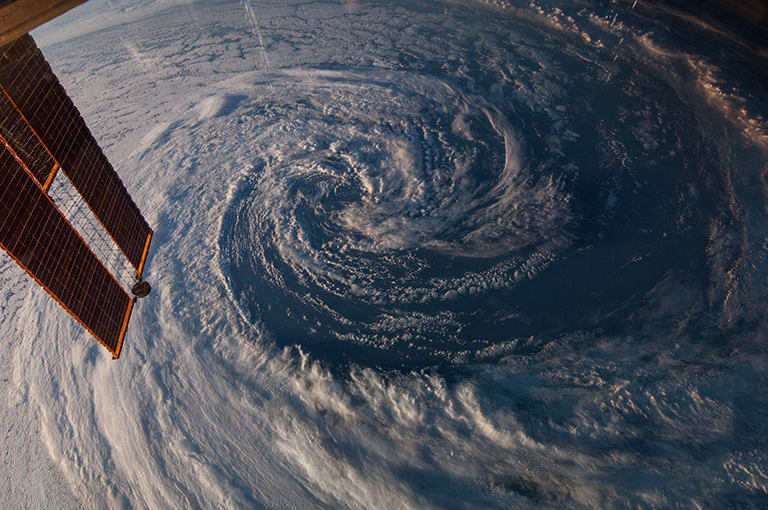Ask NASA Climate | September 19, 2017, 08:25 PDT
Weather or climate change?

A pre-winter storm located just off the coast of southwestern Australia was photographed from the International Space Station on March 29, 2014. A solar array panel on the orbital outpost is in the left side of the frame.
One query we frequently get from the public is to explain the difference between weather and climate. It’s a great question.
Some people say “weather is what you get” and “climate is what you expect.” In a nutshell, “weather” refers to the more local changes in the climate we see around us, on short timescales from minutes to hours to days to weeks. Examples are familiar – rain, snow, clouds, winds, storms, heat waves and floods. “Climate” refers to longer-term averages (they may be regional or global), and can be thought of as the weather averaged over several seasons, years or decades. Climate change is harder for us to get a sense of because the timescales involved are much longer, and the impact of climate changes can be less immediate.
Dr. Eric Fetzer, a scientist at NASA’s Jet Propulsion Laboratory, explains it this way: “Weather describes how the atmosphere behaves over weeks or less. Climate is how it behaves over time periods of about a month or longer. So climate refers to seasonal and longer periods, out to centuries and millennia.”
In addition to long-term climate change, there are shorter term climate variations. This so-called climate variability can be represented by periodic or intermittent changes related to El Niño, La Niña, volcanic eruptions, or other changes in the Earth system.
As always, we welcome your questions and comments.
